Four Countries Demand Arbitration In Iran’s Downing Of Airliner
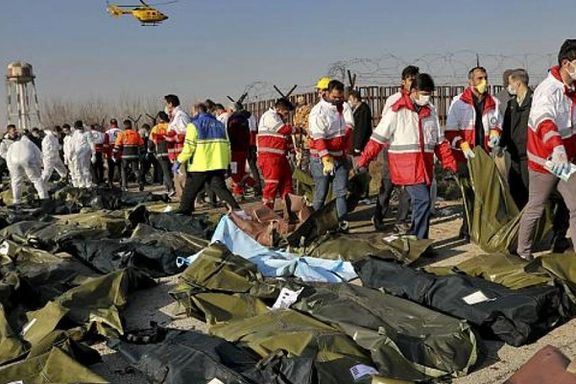
Britain, Canada, Sweden, and Ukraine have formally launched a process to hold the Islamic Republic accountable for shooting down a Ukrainian airliner over Tehran.

Britain, Canada, Sweden, and Ukraine have formally launched a process to hold the Islamic Republic accountable for shooting down a Ukrainian airliner over Tehran.
Nearly three years after Iran’s Revolutionary Guard shot down Flight PS752 shortly after takeoff from Tehran with two surface-to-air missiles, the four countries have urged Iran to agree to arbitration as Tehran has stonewalled over an independent investigation and proper compensation.
All 176 people onboard died in the January 8, 2020 incident, with dozens of Canadians among them.
The International Coordination and Response Group representing the affected countries issued a joint statement Wednesday to hold Iran accountable.
“We have requested that Iran submits to binding arbitration of the dispute related to the downing of Flight PS752…pursuant to Article 14 of the Convention for the Suppression of Unlawful Acts against the Safety of Civil Aviation of 1971.”
The convention requires all signatories to prohibit, prevent and punish certain the unlawful and intentional destruction of an aircraft in service.
The four countries as well as Iran are parties to the convention which was signed in Montreal in 1971.
If they cannot come to an agreement upon arbitration within six months, the case can be taken to the International Court of Justice.
In May 2021, some family members also filed a civil lawsuit against the government and senior officials they believe were to blame for the incident. Canada’s Ontario Court ruled that the downing of the plane was an intentional act of terrorism.
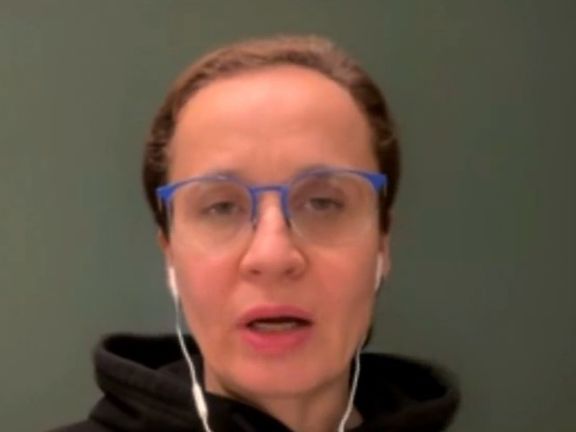
A Ukrainian parliamentarian says Iranian-made drones’ destruction of her country’s power plants and other infrastructures by Russia to deprive the people from electricity is an act of terrorism.
“Every week we see Iranian drones over our heads destroying our buildings and civil infrastructure like electricity stations, leaving millions of people without power. It's terrorism and genocide of civilians," Yulia Klymenko, a senior Ukrainian MP told Iran International Tuesday.
The United Nations is investigating the origins of the downed drones in Ukraine. Earlier this month, Reuters quoted Secretary General Antonio Guterres as saying that any findings would be reported to the Security Council “as appropriate, in due course.”
Kyiv has accused Tehran of supplying 1700 Shahed-136 loitering munitions to Moscow, which it says have been used to hit targets in Ukraine since September. Iran denies the allegations.
Klymenko said the loss of electricity and heating caused by the drone attacks is affecting millions including women and children. President Volodymyr Zelensky said Tuesday that nearly nine million Ukrainians are left without electricity as of December 26.
Expressing disappointment over Tehran's support for Moscow inthe war against Ukraine, Klymenko stressed that PresidentVolodymyr Zelensky has clearly condemned Iran's involvement in the Ukraine war.
A top Ukrainian official, presidential aide Mykhailo Podolyak, on Saturday called for the “liquidation” of Iranian factories making drones and missiles, as well as the arrest of their suppliers. Such remarks have “political and legal consequences,” the Iranian foreign ministry spokesman, Nasser Kanani, said Monday in response without further elaboration.
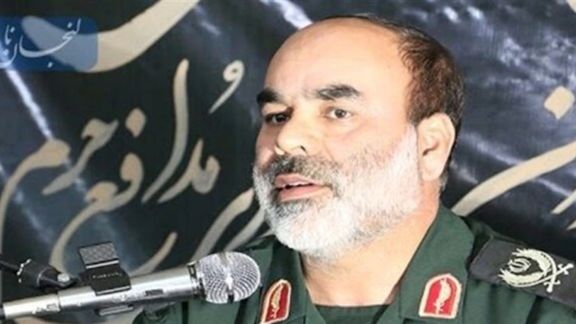
IRGC General Mohammad Karami has been appointed as the new governor of Sistan-Baluchistan province, one of Iran's most volatile and problematic areas in Iran.
Like most provincial governors under the Raisi administration, now Sistan and Baluchistan province also has a military man on top of its administrative system. Karami replaced Hossein Modarres Khalili one of the very few civilian provincial governors.
According to Rouydad24 website, Khalili, a man with a background in economic affairs failed to make Ebrahim Raisi's promise of developing the province come true. Raisi, a hardliner, had made the promise in return for the votes the people in the province cast in his favor in the 2021 presidential election. Four years earlier, voters in the poverty-stricken region had cast their ballots mostly for reform-minded candidates.
As the commander of IRGC's Quds Headquarters in southeast Iran, Karami has been the most powerful man in Kerman and Sistan-Baluchistan provinces for several years. The government naturally expects him to help pacify the volatile security situation after months of unrest marked by the IRGC's bloody attack on protesters in Zahedan, the capital of Sistan-Baluchistan on September 30, that killed more than 80 people.
The government also hopes that Karami's past experience will help him to succeed in development projects to alleviate poverty in the region. The former governor's inability to do so led to complaints even among government supporters.
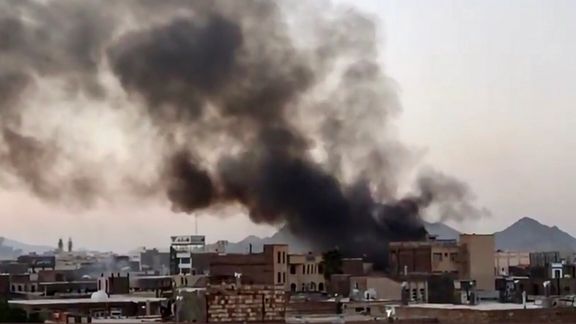
On the other hand, Karami has paid lip service to equality between Shiite and Sunnis. This could be part of the formulaic rhetoric aimed at Sunnis, the number of times he has made such statements may indicate his interest in pacifying the Sunnis who traditionally live in the Baluchistan part of the province as opposed to the Shiite populated Sistan. Considering the consequences of the attacks that have killed over a hundred Sunnis in the past 3 months, he might need many more gestures.
Karami said in the aftermaths of IRGC attack in Zahedan and Khash as "scenes where the blood of Sunnis and Shiites mixed to support Islam against terrorism," the IRGC's Tasnim news website quoted him as saying. Meanwhile, local newspaper Asr-e Hamoon quoted Karami as saying that "Iran's enemies wish to sow discord among Iran's Shiites and Sunnis."
However, the difference between Karami and other officials who have said the same things is that he always makes a comment or two about the region's desperate need for economic progress and improvement of health and education systems.
In another development, ultraconservative daily Vatan Emrooz welcomed Karami's appointment and described his it as "a choice in favor of security." The daily wrote that one of the reasons for Karami's appointment was the escalation of “Takfiri terrorist activities” in the province and the ensuing insecurity in the region. Nonetheless, the daily observed that in his mandate for Karami, President Raisi stressed the need to improve the people's livelihood.
The daily also pointed out Karami's comment at a recent conference in the province, during which he said that "the enemies are taking advantage of the province's economic problems to sow discord between Muslim sects," a remark that highlighted both his missions, strengthening security, and improving the economy.
According to Rouydad24, the former governor's biggest weakness was his inability to control the security situation in the province. Obviously, the government can be sure that even if the new governor cannot do anything about the economy, his ability to crack down on protests is a certainty.
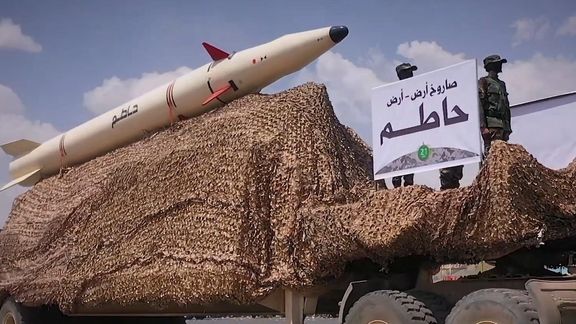
The Islamic Republic’s state media have started bragging about developing missiles and drones and distributing them among its allies throughout the Middle East.
In articles in media affiliated with the Revolutionary Guards on Sunday, the regime boasted about its “integrated missile network” and how it has armed the axis of “resistance” in the Middle East, a term which refers to a network of pro-Iranian proxies and Tehran-backed militias across the region, particularly Hezbollah, the Palestinians and Yemen.
The articles also paid a tribute to Hassan Tehrani Moghaddam, an IRGC general who was one of Iran’s earliest missile architects. He was killed when a huge explosion rocked a missile facility 30 miles from Tehran on November 12, 2011. Moghaddam was among 17 top IRGC officers killed that day, in what many believed was an operation by Israeli intelligence.
He was important for the Islamic Republic because he was one of the main experts who shifted the focus of country’s air force to missiles and drones instead of fighter jets that Iran could not acquire due to Western sanctions and unwillingness by others to get their hands dirty. Tehrani Moghaddam is often described as the “father” of Iran’s missile program.
Facing a disparity in air power, Iran started developing missiles and drones based on Soviet models or Soviet-origin models that came from China, or even, from North Korea.
“Tehrani Moghaddam also established the Lebanese Hezbollah’s missile units during a visit to Lebanon in the 1980s. Analysts believe that Tehrani Moghaddam has based Iran’s defense strategy on missile capabilities and missile deterrence, a move that effectively removed the military option of the enemies of Iran from the table,” read one of the articles.
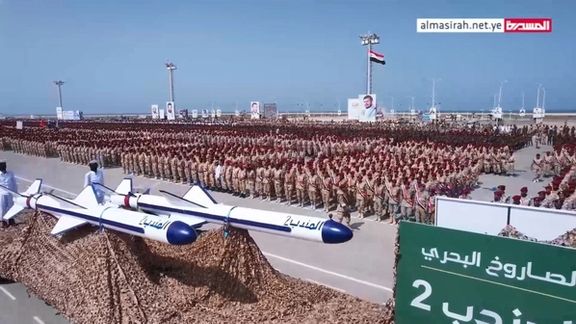
IRGC-affiliated Tasnim news agency claimed that thanks to Tehrani Moghaddam “the Islamic Republic has become the first missile power in the region and one of the top missile powers in the world, with a diverse range of ballistic missiles at its disposal." Tasnim provided a long list of Iranian drones and missiles, as well as the ones that the regime helped its allies develop based on its models, such as Hamas, Palestinian Islamic Jihad, Hezbollah, the Houthis in Yemen, the Hashd or the Popular Mobilization Forces in Iraq, and the Syrian regime.
According to the article, Palestinian groups began using missiles and Iran’s Fajr 5 rocket against Israel years ago. Hezbollah also began to deploy Iranian-backed missile technology against Israel, Tasnim claimed, saying that missiles were used in the Second Lebanon War in 2006, and Hezbollah was eventually equipped with the Fateh 110 missile. The article also mentioned more examples of Iranian missiles used by its proxy groups, from Yemen to Lebanon.
“What is a noteworthy point in this field is that the resistance forces in both Yemen and Lebanon today are equipped with surface-to-surface, anti-ship and long-range cruise missiles, that are able to hit all types of vessels in different ranges with proper accuracy and destructive power, and if appropriate tactics are used, they are also able to pass through the defense systems of combat vessels,” read the piece by Tasnim.
It, however, said “No official source in Iran has yet officially confirmed the sending of missiles to Yemen and the resistance front. It seems that now the resistance groups have achieved the technologies of using and sometimes manufacturing all kinds of missiles and rockets.”
The whole point of the article is that the Islamic Republic has knit together a unified network of its allies using its drones to expand their range of action and now seek to create an “integrated missile network” across the region putting it “under the umbrella of the integrated missile and drone network of Iran and its allies, and a new challenge will arise for America and its regional supporters.”
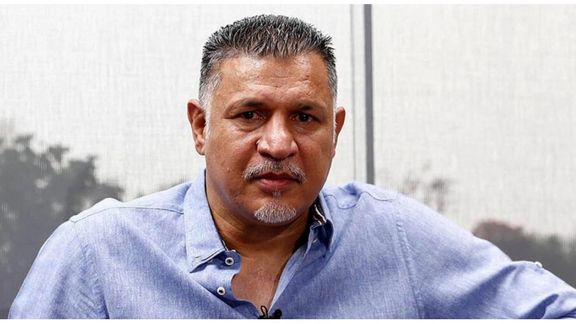
Iran has forced a Dubai-bound Mahan Airlines plane to land in its Kish Island to prevent the family of an outspoken football legend from leaving the country.
Mahan commercial flight 063, carrying Ali Daei's wife and daughter, which had left Tehran airport at 11:15 am local time for Dubai, was grounded by security personnel at Kish airport in a strange and rare act.
Eyewitnesses have told Iran International that the security agents forced Daei’s family to disembark saying that they cannot leave the country.
In response to the incident, Daei said, “Today, my wife and daughter legally boarded a plane from Imam Khomeini Airport [in Tehran] to go to Dubai, but the plane was returned from Dubai and landed in Kish to drop off my daughter and wife.”
He added that they are not arrested, but if the family was banned from leaving Iran, the police should have told them upon passport check.
Ali Daei is a hero for Iranians as he was an international soccer legend and the captain of the national team from 2000-2006. His record of 109 international goals was broken only 2021 by Cristiano Ronaldo.
“No one has given me an answer. I really don't know what the reason is for such moves. Did they want to arrest a terrorist? My wife and daughter were going to Dubai for a trip and their return flight was on Monday,” noted Daei.

“It’s hard to believe! They passed through the passport control and boarded the plane quite legally, but they [security forces] returned so many passengers from Dubai to drop off my wife and daughter. If there was a problem, why didn't they arrest them? If there is no problem, why did they bring them back?” Daei reacted.
However, state-run news agencies Tasnim and ISNA have quoted an “informed source” as saying that Ali Daei's wife had been barred from leaving Iran “because of inviting people to go on nationwide strikes, but she had managed to revoke the ban through an unlawful way.”
Daei's wife was barred from traveling to Dubai before leaving Iran upon a Judicial order and a decision by the National Security Council headed by the President, the news agencies claimed.
The Islamic Republic's Judiciary alleges that Daei's wife had previously pledged to inform security organs of her decision to travel abroad in advance. However, once the relevant authorities learned about the flight, the plane carrying her was forced to land in Kish.
It’s not clear where the plane has headed after dropping off Daei’s wife and daughter – whether it continued to Dubai or flew back to Tehran.
Many other legendary Iranian soccer players such as Ali Karimi, who is abroad and Mahdi Mahdavi-Kia, Karim Bagheri, Ahmad Reza Abedzadeh, and others are supporting the protest movement.
Earlier this month, security forces sealed a jewelry shop and restaurant belonging to Ali Daei after he shut down his businesses to join anti-government strikes.
Daei had also revealed he was threatened after throwing his weight behind the anti-regime protests triggered by the death of Mahsa Amini in mid-September.
The nationwide protests in Iran have continued for 101 days with regime forces killing hundreds of people and detaining thousands of others, including football players and celebrities.
Earlier, Daei decided not to travel to Qatar to attend the World Cup 2022 due to the brutality and deadly force used by the government against unarmed protesters.
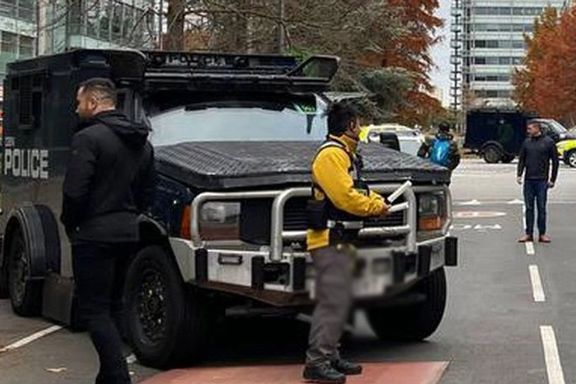
London’s Metropolitan Police detained a man Monday under the Terrorism Act, close to Iran International’s offices, after he was observed acting suspiciously.
Details of the incident are not available yet, including if the suspect was linked to any security risk related to Iran International.
In mid-November, Iran International was informed that elements connected to Iran’s intelligence services posed a threat to two of its journalists. A few days later, the police positioned armored vehicles outside the headquarters of the television network in London and other security measures were put in place.
Islamic Republic officials have used threatening language speaking about Iran International, which has been reporting around the clock on the popular protests in Iran since mid-September.
Tehran has accused “enemies” of fomenting the unrest, which began when Mahsa Amini, a 22-year-old woman was killed in police custody. She was arrested for her ‘improper hijab.’
The term ‘enemies’ in the official Iranian jargon usually means the United States, United Kingdom, Israel and Saudi Arabia.
The Islamic Republic has been persecuting journalists for decades, but began a harassment campaign against foreign-based Iranian journalists more than a decade ago, by direct and indirect threats, including against family members still residing in Iran.